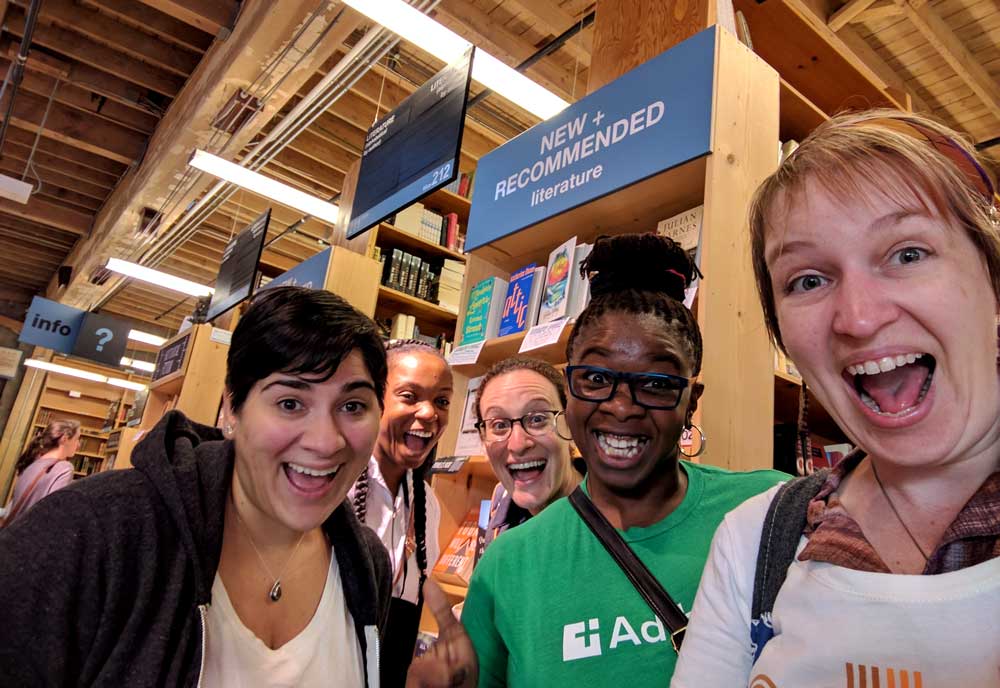UX Offsite 2017 in Portland, Oregon
As designers, we love working remotely for the flexibility we gain in our creative process — time to think, time to create, and problem solve in ways that work for each of us, free from the constraints of office-based work environments. But if we’re honest, designing remotely also presents some real challenges too. Specifically, how do you create “water cooler” moments where you can bounce ideas off each other, or come up with an entirely new solution, based on an unplanned hallway encounter with a colleague? How do you share work with people you don’t collaborate with on a day-to-day basis? Google hangouts and slack, while incredibly important, don’t solve this problem very well.
Instead, our growing UX team (design and research) got together in real life in beautiful Portland, Oregon last week to talk, work, drink lots of coffee and tea, eat, and generally, spend some quality time together. This was our first experiment in off-site co-working as a team. We divided our time into segments — defining our design principles, learning from one another, working on each other’s projects (fresh eyes!), improving our company website and recruiting efforts, and talking about how we can tackle the challenges of designing remotely. Also there were food trucks, so many wonderful food trucks.
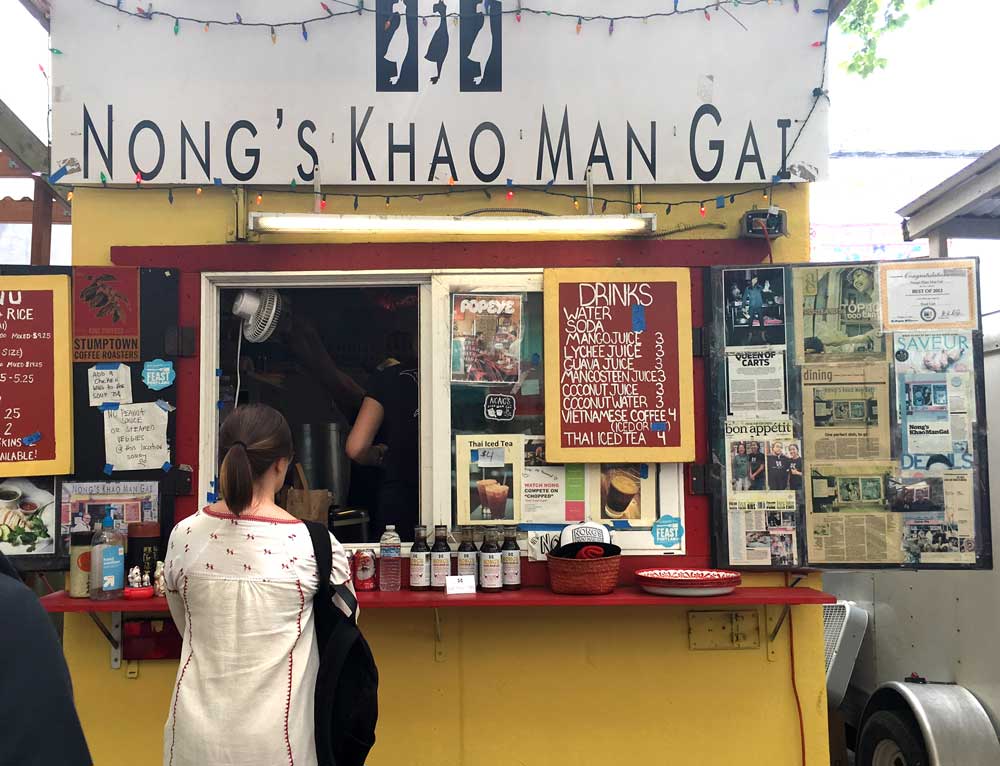
Design principles
First up, we spent time identifying our core design principles. It became apparent pretty early on that as a group, we felt strongly it was important to go beyond industry standards (discover, define, design, develop, et al.) to something that speaks to the kind of work we do — bridging the gap between people and government services and information.
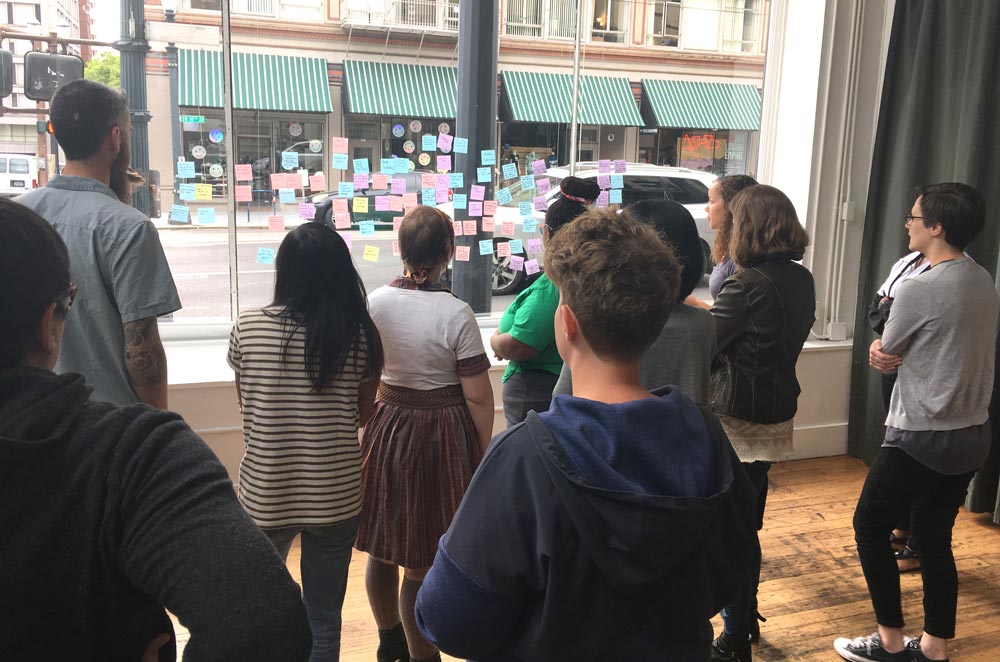
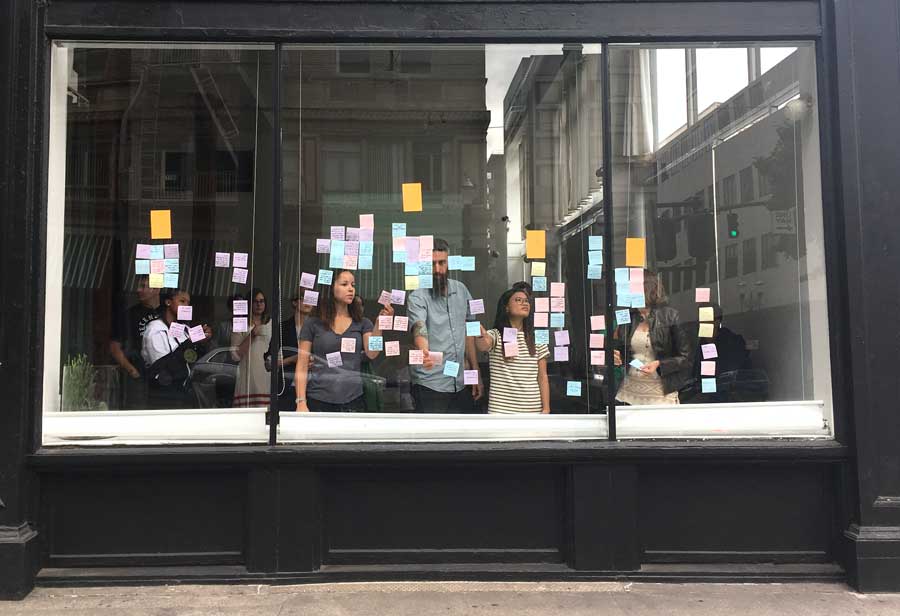
We’re excited to refine this into a working document, and I can’t wait to share it here as soon as we have our first draft.
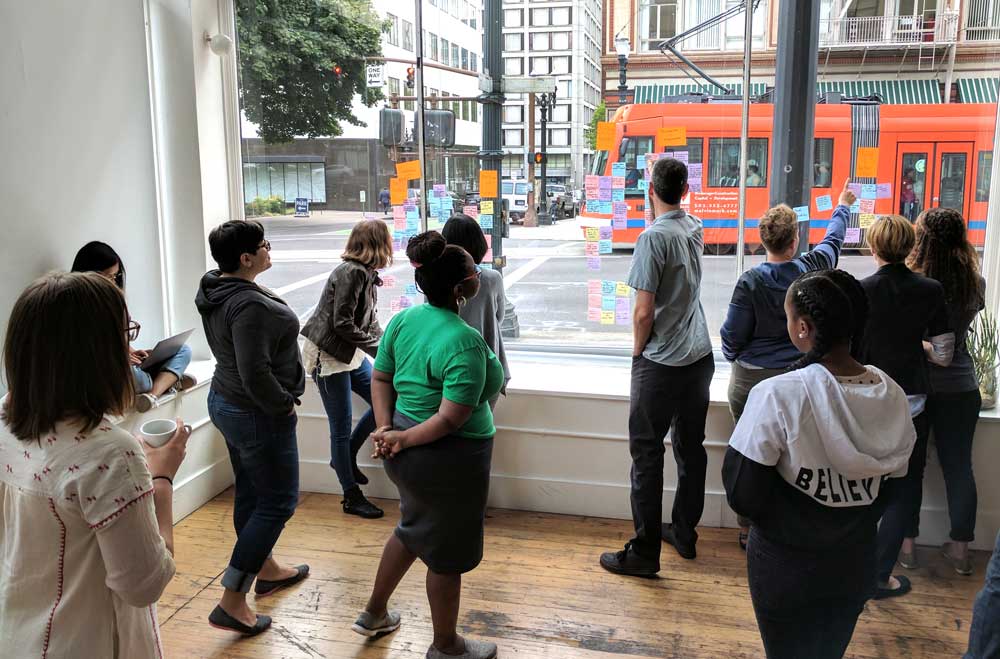
UX Improv
If this whole government website thing doesn’t work out, we have a comedy career lined up. Our UX research team schooled our designers on the ins and outs of UX research methodology, and capped it off with a live off-the-cuff focus group session. Just like at a comedy club, the researchers took a topic suggestion from the audience. From there we witnessed the research team work together to rapidly build out a research plan — thinking through the project in terms of learning goals, recruitment strategy, and brainstorming a list of questions to use as a conversation guide with the focus group.
Fresh eyeballs
Our program teams do a great job integrating designers with other practice areas, but sometimes it’s hard to find time to learn about the work our colleagues are doing elsewhere, or be able to chip in with a friendly design critique.
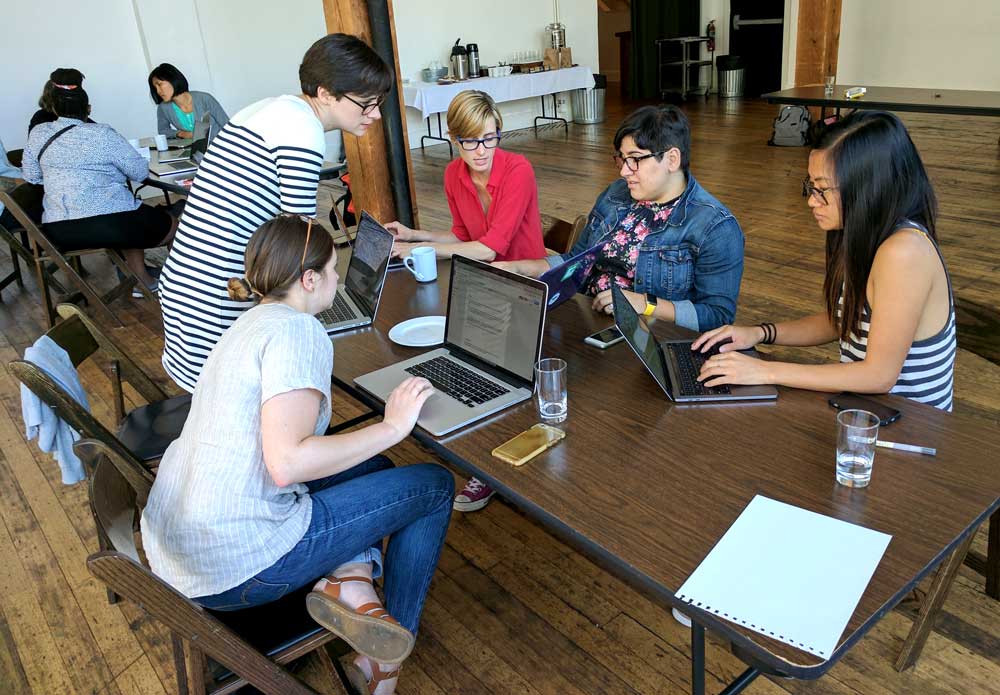
Being in the same room gave us the chance to do just that. Volunteers from our Vets.gov, Quality Payment Program, and HealthCare.gov teams shared design challenges they were currently struggling with, and sought insight from members of other teams. These sessions didn’t all lead to magical breakthroughs, but incremental change was made, and we went home committed to figuring out how to keep these conversations going in our remote work.
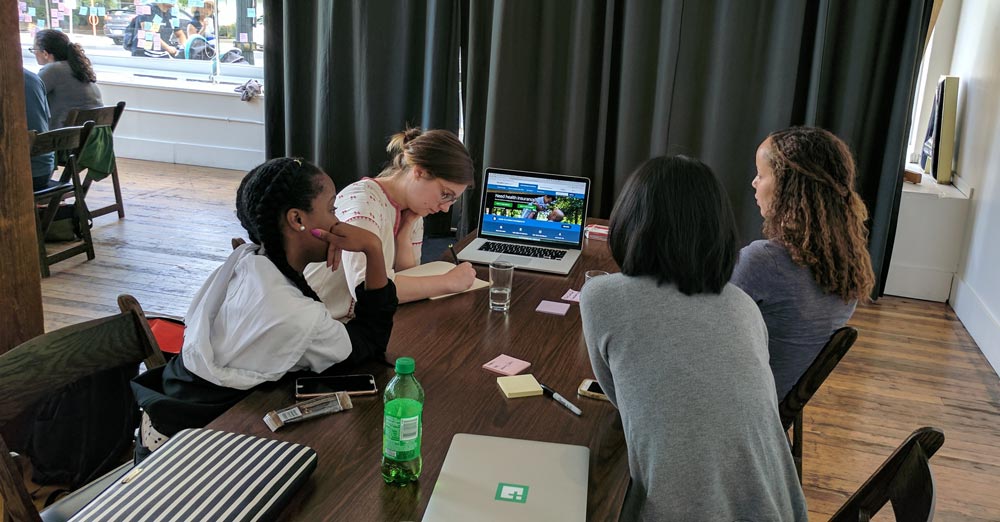
Future team
A challenge we face with our company website is trying to tell the full story of what we do, so that future team members can get a good idea of what it’s like to work at Ad Hoc. Parts of the story are currently told well, but there’s a lot of work to do to fill in the gaps. Github issues are percolating, and new content is getting put in the backlog. More to come on this front soon.
Meaningful work
Future team members aside, I couldn’t be more excited about our team. Ad Hoc is now 17 design and research members strong. One phrase kept coming up over and over again — meaningful work — the pride we feel in doing the kind of work which is helping people connect with government. This is something that’s true for all of us. Building on our #remotelife with in-person gatherings like this one will be hugely valuable as our team continues to grow. We don’t have all the answers to designing remotely, but here’s to more experiments in the future as we figure out what works.
